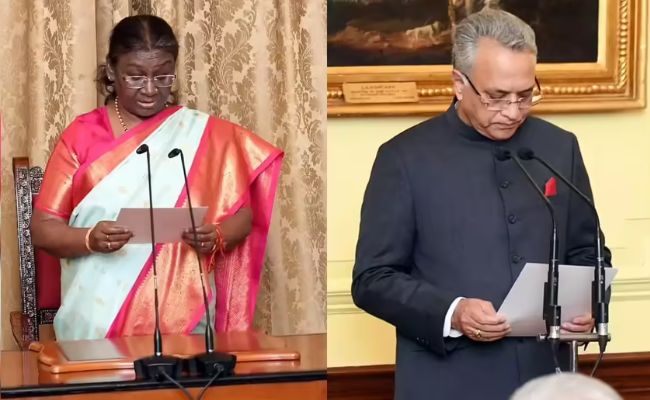The office of the Lokpal of India, responsible to ensure checks on corruption in the system, has begun the process to buy seven BMW 330 Li (Long Wheel Base) luxury cars by issuing a public tender, sparking a massive controversy. The tender was floated on October 16, to reportedly strengthen the anti-corruption body’s administrative and logistical framework.
Each of these sedans cost around Rs 60 lakh while the on road price is approx. Rs 70 lakh, according to ANI, and the tender has been floated to invite bids for the suppliers. The evaluation of bids will take place on November 7, officials familiar with the development reportedly said, quoted ANI.
What is the tender?
The Lokpal has planned to acquire seven BMW 330 Li cars, the total cost of which is expected to exceed Rs 5 crore. Once delivered, the BMW will reportedly conduct a week-long training programme for the Lokpal‘s drivers and staff, covering the vehicles’ systems, safety features, and operational instructions, the report added.
Reports said the procurement is a part of the Lokpal’s broader steps to streamline its transport and administrative facilities. The vehicles would be catering to top officials of the Lokpal, including former Supreme Court judge, Justice Ajay Manikrao Khanwilkar – the current Chairperson of the Lokpal.
Criticism of the move
Meanwhile, criticising the move of purchasing high-end cars from public money, senior advocate Prashant Bhushan said the institution of the Lokpal has been ruined completely.
“The institution of Lokpal has been ground to dust by the Modi govt, by keeping it vacant for many years & then appointing servile members who are not bothered by graft & are happy with their luxuries. They are now buying 70L BMW cars for themselves!” he said in a post on X.
For CBI Director, M Nageswara Rao shared a long post on X over the development and said titled “LOKPAL: A Redundant White Elephant”
The institution of Lokpal has been ground to dust by the Modi govt, by keeping it vacant for many years & then appointing servile members who are not bothered by graft & are happy with their luxuries. They are now buying 70L BMW cars for themselves! pic.twitter.com/AEEE2gPMtp
— Prashant Bhushan (@pbhushan1) October 21, 2025
“The Lokpal Act, 2013, enacted by the UPA government under pressure from the “India Against Corruption” movement led by Arvind Kejriwal, allegedly supported by the RSS-BJP, with the naive and sincere Anna Hazare roped in as a mascot, is a flawed law that established the Lokpal as a redundant ombudsman,” he said.
“The Act remained unimplemented until March 2019, as no Lokpal was appointed. With the General Elections nearing in May 2019, the RSS-BJP-Modi government moved to activate it to avoid criticism from opposition parties during the campaign,” he added.
Rao said Arun Jaitley had then called him to seek suggestions and the IPS officer said there was no point in floating a new body when the Central Vigilance Commission already exists. ” I argued that the Lokpal was unnecessary due to the existing Central Vigilance Commission (CVC), emphasising that it would only waste public resources and merely provide lucrative post-retirement positions for retired judges and bureaucrats. Instead, I proposed strengthening institutions like the CVC and CBI for greater effectiveness, rather than creating another redundant body. I suggested repealing the Lokpal Act, 2013, via an Ordinance or, alternatively, abolishing the CVC by repealing its Act, given their overlapping functions,” he added.
“The whole Anna Andolan that shattered Congress’s credibility and helped BJP ride to power in 2014 — now ends with Lokpal members getting ₹70L BMWs. The same “anti-corruption” warriors enjoying luxury on taxpayers’ money. What an irony!” said a user on X.
The government has not responded to the row so far.
Who is the Lokpal?
The Lokpal is an independent anti-corruption authority in India, created to represent the public interest and investigate corruption allegations at the national level. It was established under the Lokpal and Lokayuktas Act, 2013, enacted by Parliament following the Jan Lokpal movement led by social activist Anna Hazare in 2010.
The Lokpal is authorised to investigate corruption complaints against the Prime Minister, Union Ministers, Members of Parliament, and central government officials from Groups A, B, C, and D. It also has a wide jurisdiction which includes chairpersons, members, and officers of any board, corporation, or trust established by an Act of Parliament or funded by the Central Government, as well as societies or trusts receiving foreign contributions above Rs 10 lakh. While the Lokpal functions at the national level, similar bodies known as Lokayuktas handle corruption matters at the state level.

